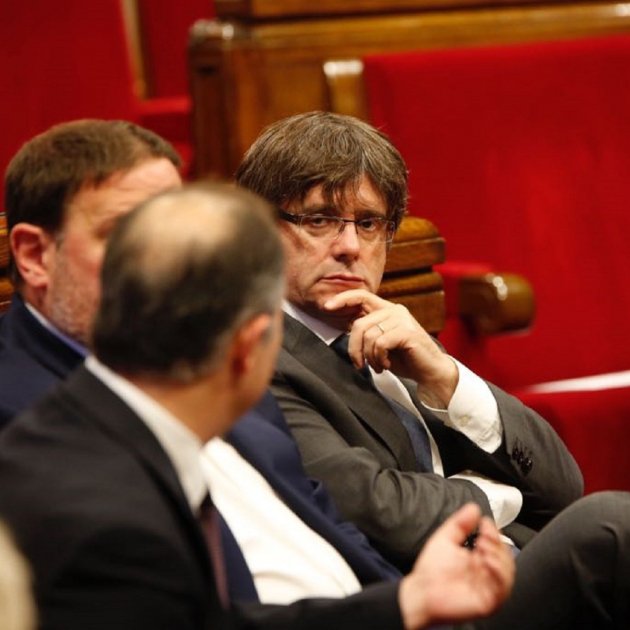The Catalan president, Carles Puigdemont, has replied to the leader of Ciudadanos (Citizens) in Catalonia, Inés Arrimadas, that if she wants to see what a "threat" is she has to listen to the press conference that the deputy prime minister of Spain, Soraya Sáenz de Santamaría, gave this morning. "That was a threat and an insult to all Catalans," he said.
In the press conference the president was referring to, the deputy prime minister had described today's acceptance to debate the Referendum Law as "an attack towards democracy, the Catalans and political decency". Visibly upset, she said the Catalan chamber was acting as a "dictatorial regime" and that, under the leadership of president of the Parliament Carme Forcadell "democracy has died".
Arrimadas' was the only question from the opposition that gave president Puigdemont cause to deal with the debate over the approval of the proposed Referendum Law which is monopolising today's plenary assembly in the Parliament.
Arrimadas complained, without specifying who she was referring to, that journalists have been threatened from JxSí's "orbit" and she accused the Catalan government of creating "social tension in Catalonia".
"If you want to see what a regime of threats is, look at your counterparts in Madrid and you will understand something. At the hands of this political culture that you're defending, they have attacked pacts like the Statute [of Autonomy of Catalonia], they've banned politicians from office for promoting turnout [in the 2014 unofficial referendum] and they've threatened this government. This government, needless to say, does not practice threats, it practices democracy," he said.
Also, in answer to the president of JxSí (Together for Yes), Lluís Corominas, Puigdemont referred to the calling of the referendum to assure the chamber that the referendum isn't a crime, but a guarantee that the citizens can decide about belonging to Spain.
"We will not let hope and excitement carry us away. The hope to make a country between all of us. In spite of provocations and disagreements, serenity and strength and, especially, a lot of hope," said the president.
Both Lluís Rabell of CSQP (Catalonia Yes We Can) and Miquel Iceta of PSC (Socialists' Party of Catalonia) brought up the debate about the Mossos (Catalan police) in the session under the control of the government based on their actions after the attacks in Barcelona and Cambrils. The first called for the police body to remain out of the political debate, the second for the creation of a coordination group between the parties of the parliament with the president and the Interior minister, "to make it clear that there are topics that we want to keep above political debate".
"To have a national pact on security is good, because that strengthens the democracy", replied the president who promised to pursue the proposal.
The president also wanted to recognise the work done by the Catalan police and said that "those that thought of the Mossos as playing at being police don't understand what happened after the attack."
